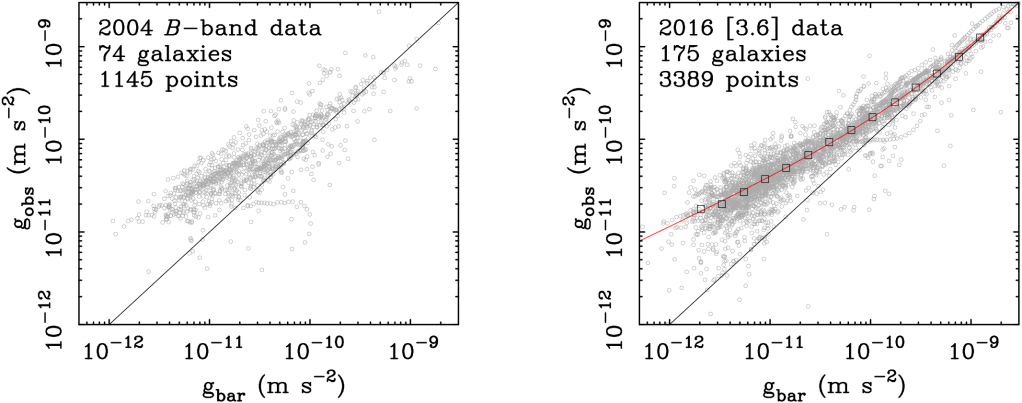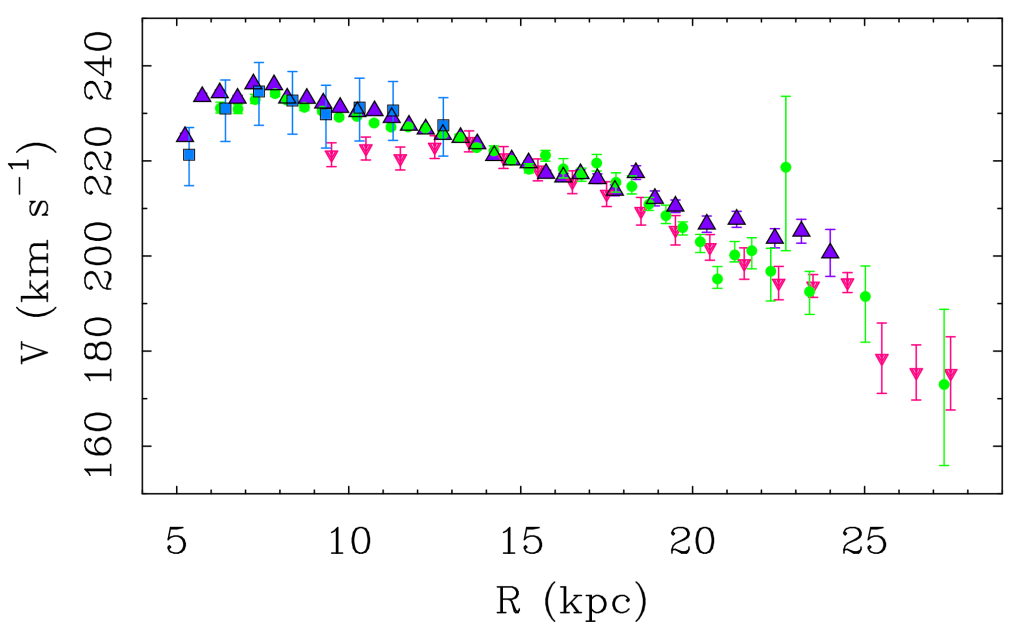
People have been asking me about comments in a recent video by Sabine Hossenfelder. I have not watched it, but the quote I’m asked about is “the higher the uncertainty of the data, the better MOND seems to work” with the implication that this might mean that MOND is a systematic artifact of data interpretation.







